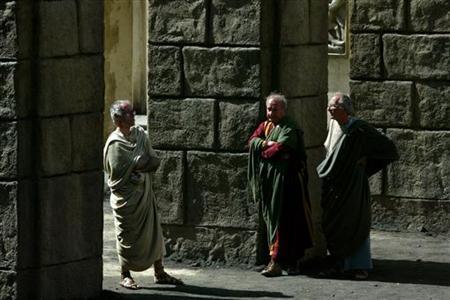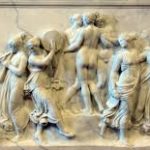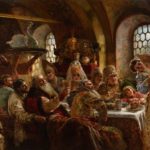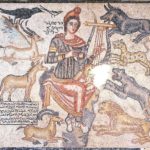Ancient Roman Dramas Plays and Theaters:
Origins of ancient Roman theaters
The Romans borrowed dramas extensively from Greek theatre. Although Roman theatre may not be held in the same high esteem as that of the Greeks, we have inherited much from the influence of the Roman Theatre, including the word “play” itself, which derives from a literal translation of the Latin word Ludus, which means recreation or play.
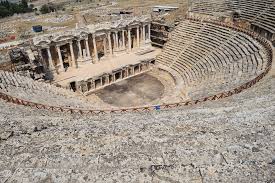
Classic Dramas
Classic dramas in Rome were written in poetic meters and performed by all-male actors wearing masks, usually during various religious festivals. Originally, all Roman theaters were temporary wooden constructions put up especially for the occasion and dismantled when the festival was over. The first permanent stone theater was erected by Pompey in 55 BCE.
Ancient Roman Dramas Plays and Theaters
Roman plays, especially comedies, had lots of stock characters. What this means is that in most Roman comedies, we see the same type of character appearing over and over again.
Roman Dramas and Theaters Facts
The Fabula Togata were of native origin and were based on more broadly farcical situations and humor of a physical nature. An author of some of the better examples of this type of drama is Plautus (c.250-184 B.C.).
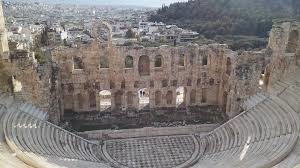
240 B.C. was not only the beginning of Greek drama in Rome but of formal Latin literature. Mimes were normal parts of the Floralia (an annual festival from 173) which was first celebrated in 238. The word mime is from the Greek Mimeisthai (to imitate). Romans often called mimic actors planes (with bare feet) (Duckworth p. 14). The bare feet let the mimic actors, male and female, move around better than actors wearing tragedy’s cothurnus (buskin) or comedy’s Soccus (slipper).
Popular ancient Roman plays
One of the popular Roman plays was Arrogant Soldier. This character is very egotistical, which means he has a very high opinion of himself! He is always chasing after women, whether or not they are married! He thinks that he is extremely handsome, and believes that all the women are in love with him. He likes it when people talk about his (usually false!) accomplishments.
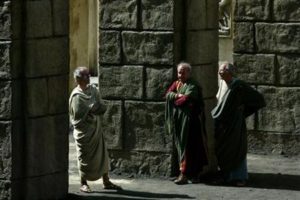
By the end of the Republic, the classical drama was largely out of favor. Much more popular were the pantomimes, which also employed masks but no words. These elaborate performances usually involved one male dancer, the pantomime (“he who imitates all things”) who used gestures and dance to act out a simple story, usually based on a myth that the audience would recognize.
The dancer was accompanied by a chorus and musicians along with elaborate staging, so in some respects, the pantomime resembled a modern ballet.
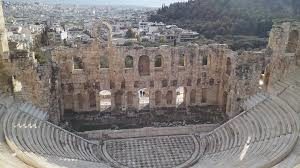
However the greatest impact Rome may have had on the theatre was to lower it in the esteem of the Church – an impact that was to retard the growth of the dramatic arts for several centuries.
More info on- roman theatre facts, theatre costumes, Comedy Theater
